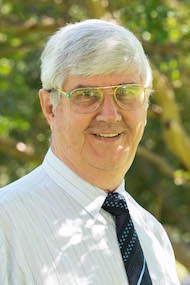|
|
New WRF International DirectorMarch 03, 2015
Dr. P.J. (Flip) Buys On March 23-27, Rev. Dr. Peter Lillback will travel to Sao Paulo, Brazil, to participate in the General Assembly (GA) of the World Reformed Fellowship (WRF). Westminster is a member of WRF and, through the organization, Dr. Lillback has been able to partner with brothers and sisters with a commitment to Reformed doctrine across continents. He will attend this year’s GA to celebrate the appointment of Dr. P.J. (Flip) Buys as the new international director of WRF. Dr. Buys was born in South Africa in 1947. As an ordained minister in the Reformed Churches in South Africa, he is an experienced pastor, cross-cultural missionary, church planter, and initiator of community development projects in the midst of the challenges of poverty and HIV/AIDS victims and orphans. He is also an adjunct professor of Missiology at Northwest University in Potchefstroom. Dr. Buys visited Westminster in the Fall of 2014 to meet with Dr. Lillback. In this interview, Dr. Buys talks with Dr. Lillback about his connection to Westminster, the value of theological education, and the importance of WRF. Lillback: Tell us a bit about your connection with Westminster through the years Lillback: What are some of the opportunities that are before higher education and theology to use technology to advance our message? The challenge is Africans have field-dependent learning styles. That means they function best when they work in groups; they don’t learn so well when they are doing it on their own. So, we need to become very creative to help them to study in groups. Lillback: Is there anything you’d like to share as the new WRF international director? By making needs known, in terms of poverty and community development, it happened that young people approached us and said they want to take a gap year and give their life to help somewhere with teaching or community development. We have had young people coming from all over the world, and we can facilitate their work for a year with orphans and basic education, for example. Another thing is how we can enrich each other coming from different contexts and worldviews. I was part of the theological commission that designed the statement of faith of WRF. What a blessing it was to sit there with people from Asia, Kenya, Europe and so on. We discussed, “What are the real issues of the Reformed faith that are not really properly taught in the existing confessions?” It might be there in essence, but the church globally is facing problems that are not so directly addressed in the existing Reformational confessions. Eventually, after working six years together with people from all over the world, we came up with a statement of faith, with which we can take the richness of the Reformed faith and apply it to new problems that churches and Christians are facing today. Would you pray for Dr. Buys in his new leadership role with the World Reformed Fellowship, working to advance the gospel throughout the world? |






